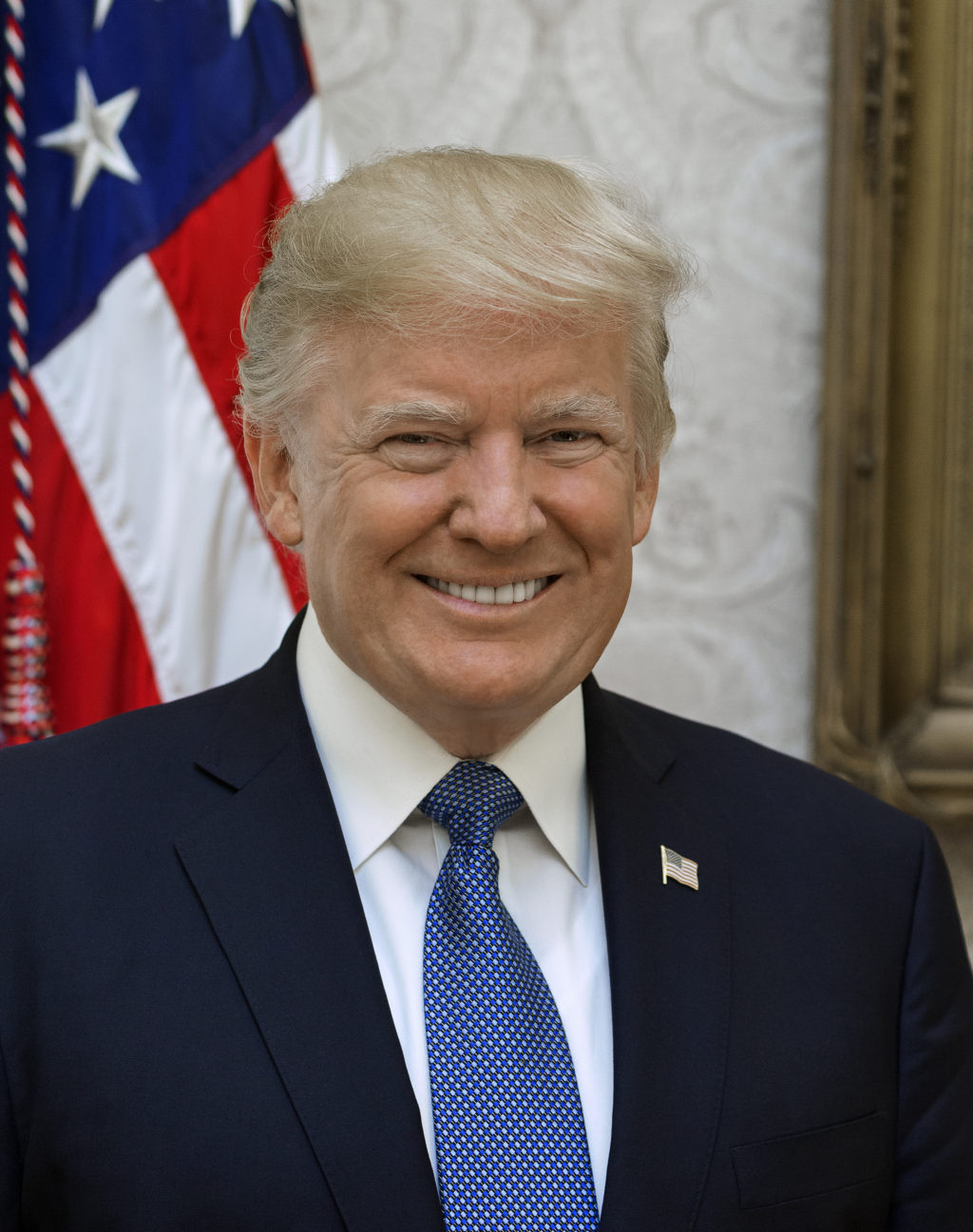Incumbent President Donald Trump. Photo from Whitehouse.gov.
Gone are the days when you’d wake up on the first Wednesday of November every four years and know the victor of the United States presidential election.
In a divisive Election Week in American history, the presidential contest of Republican President Donald Trump vs. former Democratic Vice President Joe Biden remains unclear at the time of publication.
As of Nov. 4 at 10 p.m., Biden has 264 electoral votes, compared to Trump’s 214 electoral votes. Earlier that day, Biden won battleground states Wisconsin and Michigan, giving him an edge over Trump. However, Trump grabbed other key swing states such as Florida and Ohio earlier in the race.
Several states remain undecided, making it hard for any news source to declare a definitive winner. Key deciders such as Pennsylvania, Georgia, North Carolina and Nevada are all still processing many of their early voting and mail-in ballots, thus not having made any call yet.
While all the votes have yet to be counted due to a high amount of mail-in ballots and early votes cast in this election, politicians on both sides have declared success for their parties early on.
Trump’s campaign has already announced demands for recounts in Wisconsin, and has filed a lawsuit in Michigan in an effort to stop the ongoing ballot counts there. On the Democrats’ side, current Speaker of the House of Representatives Nancy Pelosi (D-California) has already called a victory for Biden.
As the presidential election remains undecided, the University of Rhode Island has not yet seen any political uproars. However, the Department of Public Safety and the Dean of Students Office are expecting students to exercise their First Amendment rights after the election results are in.
Emergency Management Director and Assistant Director of Public Safety Samuel Adams and Dean of Students Daniel Graney have prioritized student safety, student support and COVID-19 guidelines in their preparation for any demonstrations, protests or rallies on campus.
“In the last presidential election we were not prepared, and [that] left the University scrambling in some senses of the term and more so on how to support people that were struggling,” Graney said.
Supporting students that want to protest or march after the election in a way that ensures their safety, but still allows them to express their views, is important to the University, according to Graney.
Both Adams and Graney believe allowing students to have their voices heard on campus is important in times like these, but don’t want the issues to get out of hand.
“We really respect the right of our students to protest, as long as it’s peaceful and appropriate,” Adams said. “Vandalism and looting … that’s a whole different matter. This isn’t a really good time to do spontaneous protests. But if it’s organized, we want to protect the students, protect [their] right from a health standpoint.”
Sophia Skaggs, a first-year student, believes that URI will continue to support students amid potential protests and political unrest.
“I, as a Rhode Island citizen, live in a pretty liberal area, so I’ve always been surrounded by people with the same beliefs as me,” Skaggs said. “I grew up around the University, and I don’t doubt that they will do everything they can to let our voices be heard.”
Similarly, sophomore Nathan Beliiveau-Robinson said he is concerned with how the COVID-19 pandemic, amid the current political landscape, will affect life on campus during this political time.
“With the pandemic raging, and the division we are seeing among Americans on social media, I’m nervous to see what is going to go down on campus,” Beliveau-Robinson said. “I know many of us are frustrated as we wait for the ballots to roll in, but we are in this together. The outcome of this election is critical to the wellbeing of our communities and country.”
According to an email sent out to all students on behalf of the Office of Community, Equity and Diversity, the Counseling Center has “created a kit to help students deal with post-election stress,” which can be found on the University website. It offers tips to unplug, refuel and connect during this stressful time. The guide encourages students to reduce screen time and lessen social media consumption, as well focus on their mental and physical well being.
While citizens throughout the country wait for their ballots to be counted and election results to be reported, the University continues to offer students resources and is preparing for demonstrations accordingly.





